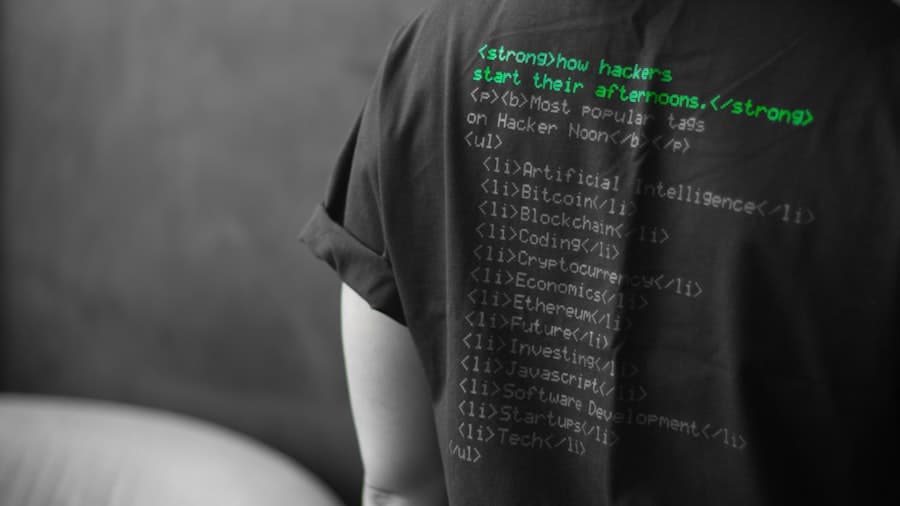Hacktivism, a portmanteau of hacking and activism, has its roots in the early days of the internet, where the convergence of technology and political activism began to take shape. The term itself emerged in the late 1990s, but the practices associated with it can be traced back to the 1980s and 1990s when computer enthusiasts and activists began to use their skills to promote social and political causes. Early examples include the work of groups like the Chaos Computer Club in Germany, which sought to expose government surveillance and advocate for digital rights.
These pioneers laid the groundwork for a movement that would evolve significantly with the advent of more sophisticated technology and a growing awareness of digital rights. The motivations behind hacktivism are often deeply rooted in a desire for social change. Activists have utilized hacking techniques to challenge authority, expose corruption, and raise awareness about various issues, from environmental concerns to human rights violations.
The early hacktivists viewed the internet as a new frontier for free expression and a tool for democratizing information. This ethos was exemplified by the actions of groups like the Electronic Disturbance Theater, which used digital means to protest against the Mexican government’s treatment of indigenous peoples. Their “FloodNet” project allowed users to send simultaneous requests to a website, effectively overwhelming it and drawing attention to their cause.
Such actions marked the beginning of a new form of protest that leveraged technology in innovative ways.
Key Takeaways
- Hacktivism originated in the 1980s as a form of protest and activism using computer hacking techniques.
- The digital age has seen hacktivism evolve into a powerful tool for social and political change, with groups using cyber attacks to promote their causes.
- Notable hacktivist groups like Anonymous and LulzSec have made significant impacts through their cyber attacks on government and corporate targets.
- Hacktivism raises ethical and legal concerns, as it blurs the line between activism and criminal behavior, leading to debates on the legitimacy of these actions.
- Social media plays a crucial role in the spread of hacktivist ideology, allowing groups to recruit and mobilize supporters for their causes.
The Evolution of Hacktivism in the Digital Age
As technology advanced, so too did the methods and scope of hacktivism. The rise of social media platforms in the 2000s transformed how hacktivists communicated and organized their efforts. No longer confined to obscure online forums or mailing lists, activists could now reach a global audience instantaneously.
This shift allowed for greater collaboration among like-minded individuals and groups, leading to more coordinated and impactful actions. The Arab Spring is a prime example of this evolution; social media played a crucial role in mobilizing protests across the Middle East and North Africa, with hacktivists using their skills to disrupt government communications and spread information about ongoing demonstrations. Moreover, the proliferation of smartphones and mobile internet access has further democratized hacktivism.
Individuals armed with nothing more than a smartphone can now participate in hacktivist activities, whether by sharing information, organizing protests, or even engaging in direct action through digital means.
For instance, during the Black Lives Matter protests, activists employed various digital tools to document police brutality and disseminate information about their rights, showcasing how hacktivism has adapted to contemporary social movements.
Notable Hacktivist Groups and Their Impact

Several hacktivist groups have emerged over the years, each leaving a distinct mark on the landscape of digital activism. One of the most well-known is Anonymous, a decentralized collective that gained notoriety for its high-profile operations against various targets, including government agencies, corporations, and organizations perceived as oppressive. Their actions often blend humor with serious political messages, exemplified by their “Operation Payback,” which targeted organizations that opposed WikiLeaks following its release of classified documents.
Anonymous’s ability to mobilize quickly and execute complex operations has made it a formidable force in the realm of hacktivism. Another significant group is LulzSec, which operated for a brief period in 2011 but made headlines with its audacious attacks on major corporations and government entities. Their operations included hacking into Sony’s PlayStation Network and leaking user data, as well as targeting the CIA’s website.
LulzSec’s actions were often framed as both a critique of corporate greed and a demonstration of their technical prowess. While their methods sparked debate about the ethics of such attacks, they undeniably raised awareness about cybersecurity vulnerabilities and prompted discussions about data privacy.
The Ethical and Legal Implications of Hacktivism
The ethical landscape surrounding hacktivism is complex and often contentious. Proponents argue that hacktivism serves as a necessary tool for social change, particularly in situations where traditional forms of protest may be ineffective or suppressed. They contend that exposing corruption or injustice through hacking can lead to greater accountability and transparency.
For instance, the actions of WikiLeaks in publishing classified documents have been hailed by some as heroic acts of whistleblowing that shed light on government misconduct. Conversely, critics argue that hacktivism can cross ethical lines when it results in collateral damage or harms innocent individuals. The unauthorized access to private data can lead to significant repercussions for those affected, raising questions about consent and responsibility.
Legal implications are equally significant; many hacktivist actions fall under anti-hacking laws that can result in severe penalties, including imprisonment. The case of Aaron Swartz, a prominent internet activist who faced federal charges for downloading academic articles from JSTOR, highlights the potential consequences of engaging in hacktivist activities. Swartz’s tragic death brought attention to the legal risks faced by those who challenge established systems through digital means.
The Role of Social Media in the Spread of Hacktivist Ideology
Social media has played an instrumental role in amplifying hacktivist ideologies and facilitating their spread across diverse audiences. Platforms like Twitter, Facebook, and Reddit have become essential tools for organizing protests, sharing information about ongoing campaigns, and mobilizing supporters. The immediacy of social media allows hacktivists to disseminate their messages rapidly, reaching individuals who may not have been aware of specific issues or movements otherwise.
Moreover, social media serves as a platform for storytelling, enabling activists to share personal narratives that resonate with broader audiences. This humanization of issues can foster empathy and encourage individuals to engage with causes they might not have previously considered. For example, during the #MeToo movement, social media became a powerful vehicle for survivors to share their experiences with sexual harassment and assault, leading to widespread public discourse and calls for accountability.
Hacktivists have leveraged this momentum by using digital platforms to advocate for systemic change within institutions that perpetuate inequality.
Government and Corporate Responses to Hacktivist Attacks

In response to the rise of hacktivism, governments and corporations have developed various strategies to counteract these digital threats. Law enforcement agencies have increased their focus on cybercrime units dedicated to investigating hacktivist activities. This includes monitoring online forums where hacktivists congregate and employing advanced cybersecurity measures to protect sensitive information from breaches.
For instance, following high-profile attacks by groups like Anonymous, many organizations have invested heavily in cybersecurity infrastructure to safeguard against potential threats. Corporations have also adopted proactive measures by enhancing their public relations strategies in response to hacktivist campaigns. When faced with negative publicity stemming from hacktivist actions, companies often engage in damage control by addressing the underlying issues raised by activists.
This can involve implementing changes in corporate policies or practices that align more closely with public expectations regarding social responsibility. For example, after being targeted by environmental activists, some corporations have committed to more sustainable practices as a means of rebuilding trust with consumers.
The Future of Hacktivism and Its Potential Impact on Society
Looking ahead, the future of hacktivism appears poised for continued evolution as technology advances and societal issues become increasingly intertwined with digital platforms. As artificial intelligence and machine learning become more prevalent, hacktivists may leverage these technologies to enhance their capabilities or develop new forms of protest that challenge existing power structures. The potential for deepfakes or automated bots could introduce new dimensions to hacktivist campaigns, raising ethical questions about authenticity and manipulation.
Moreover, as global issues such as climate change, inequality, and authoritarianism persist, hacktivism may play an increasingly vital role in advocating for change. The ability to mobilize quickly through digital means allows activists to respond rapidly to emerging crises or injustices. However, this also raises concerns about the potential for misinformation or radicalization within online spaces.
As society grapples with these challenges, it will be essential to foster dialogue around the ethical implications of hacktivism while recognizing its potential as a catalyst for positive change.
How Individuals Can Protect Themselves from Hacktivist Attacks
In an era where hacktivism is becoming more prevalent, individuals must take proactive steps to protect themselves from potential attacks or data breaches associated with these activities. One fundamental measure is maintaining strong cybersecurity practices at both personal and organizational levels. This includes using complex passwords, enabling two-factor authentication on accounts, and regularly updating software to patch vulnerabilities that could be exploited by malicious actors.
Additionally, individuals should be aware of their digital footprint and take steps to minimize unnecessary exposure online. This can involve adjusting privacy settings on social media platforms, being cautious about sharing personal information publicly, and utilizing encryption tools for sensitive communications. By adopting these practices, individuals can better safeguard themselves against potential repercussions stemming from hacktivist activities while contributing to a more secure digital environment overall.
In conclusion, while hacktivism presents unique challenges and ethical dilemmas within our increasingly interconnected world, it also offers opportunities for advocacy and social change that resonate deeply with contemporary issues facing society today.
In the article “Exploring the Rise of Hacktivism in the Digital Age,” the increasing influence of digital activism is examined, highlighting how technology is reshaping the landscape of social and political movements. A related article that delves into the technological advancements impacting our daily lives is “The iPhone 14 Pro: Experience the Power of Pro.” This piece discusses the cutting-edge features of the iPhone 14 Pro, showcasing how modern technology continues to evolve and influence various aspects of society. For more insights, you can read the full article

